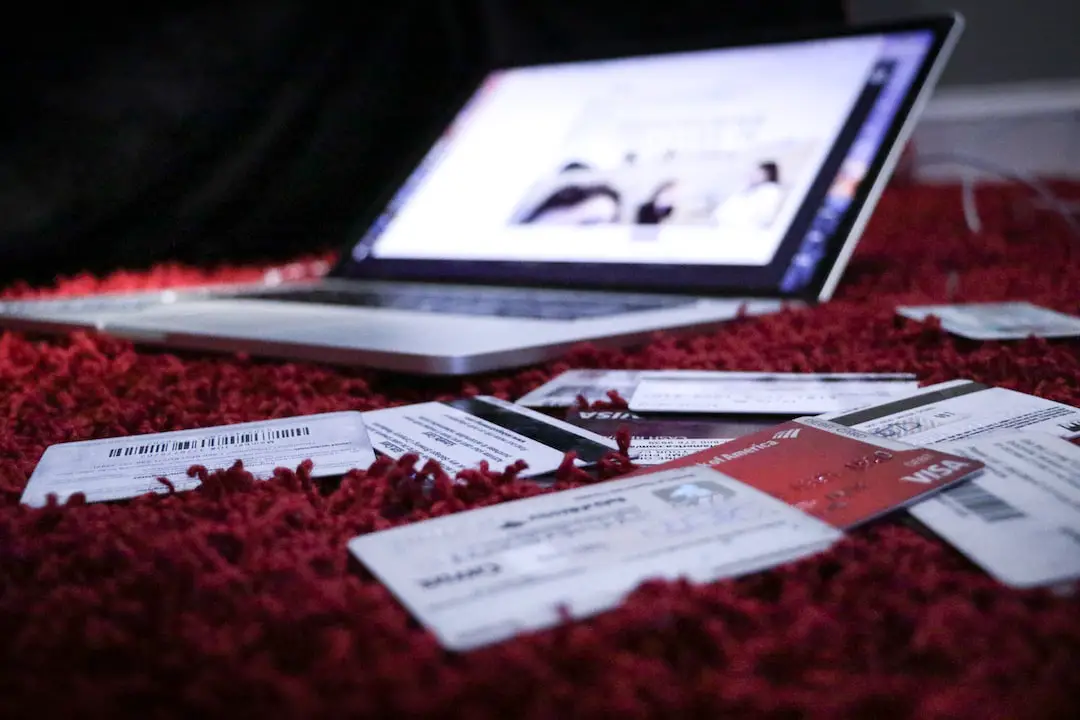Support our educational content for free when you purchase through links on our site. Learn more
What Credit Score is Needed for Best Lease Deals? [2024]

Have you ever wondered what credit score you need to get the best lease deals on a car? Well, you’re not alone. Many people are unsure about the credit requirements for leasing a car and how it affects the terms and conditions of the lease. In this comprehensive guide, we will delve into the world of credit scores and car leases, providing you with all the information you need to know to secure the best lease deals possible.
Quick Answer
To get the best lease deals, you generally need a credit score of 700 or above. However, lease requirements can vary depending on the automaker and market conditions. If your credit score is lower than 700, leasing a car may be more challenging, and you may have to pay more at signing and each month. Leasing a used car could be an option, but the selection may be limited. It’s important to note that leasing a car can also help build your credit score through payment history and credit mix.
Now, let’s dive deeper into the world of credit scores and car leases to understand the factors that come into play when determining the credit score needed for the best lease deals.
Quick Tips and Facts
Before we explore the topic further, here are some quick tips and facts to keep in mind:
✅ A credit score of 700 or above is generally considered good and can help you secure better lease terms.
✅ Lease requirements can vary by automaker and change depending on market conditions.
✅ Many lenders use auto-specific credit scores that weigh past car-loan payments more heavily.
✅ The credit score threshold for the best lease deals has increased by about 20 points since the COVID-19 pandemic hit.
✅ Leasing a car can help build your credit through payment history and credit mix.
✅ Leasing a used car may be an option if your credit score is lower, but the selection may be limited.
✅ It may be easier to finance a used car with a lower credit score, with the average score for financing a used car being 690.
✅ Leasing a car can positively impact your credit score by building a positive payment record.
❌ Leasing a car can negatively impact your credit score if payments are at least 30 days late, resulting in delinquency.
Now that we have covered the quick tips and facts, let’s take a step back and understand the background and history of credit scores and car leases.
Background: The Relationship Between Credit Scores and Car Leases

The relationship between credit scores and car leases is a crucial factor in determining the terms and conditions of a lease agreement. Credit scores are numerical representations of an individual’s creditworthiness, and they play a significant role in determining whether a person qualifies for a lease and the terms they are offered.
When you apply for a car lease, the leasing company or dealership will assess your creditworthiness by looking at your credit score and credit history. They want to ensure that you have a good track record of managing your finances and making timely payments. A higher credit score indicates a lower risk for the leasing company, making you a more attractive candidate for a lease.
Leasing companies and dealerships use credit scores to assess the likelihood of a lessee defaulting on their lease payments. A higher credit score gives them confidence that you will make your lease payments on time, reducing the risk for the leasing company. As a result, they are more likely to offer you better lease terms, such as lower interest rates, lower monthly payments, and more favorable lease terms.
On the other hand, if your credit score is lower, leasing companies may view you as a higher risk. They may require a larger down payment, charge higher interest rates, or impose stricter lease terms to mitigate the perceived risk. However, it’s important to note that lease requirements can vary by automaker and change depending on market conditions. Some automakers may be more lenient with credit requirements, while others may have stricter guidelines.
Now that we have a better understanding of the background and history of credit scores and car leases, let’s explore the specific credit score requirements for the best lease deals.
1. If Your Credit Score is 700 or Above: Unlocking the Best Lease Deals
If your credit score is 700 or above, you’re in a favorable position when it comes to leasing a car. A credit score of 700 or above is generally considered good and indicates that you have a solid credit history and a track record of responsible financial management. As a result, leasing companies are more likely to offer you better lease terms and more attractive deals.
Here are some advantages you can enjoy if your credit score is 700 or above:
✅ Easier Approval: With a good credit score, you’ll have an easier time getting approved for a lease. Leasing companies will view you as a low-risk candidate and will be more willing to work with you.
✅ Attractive Deals: A higher credit score gives you leverage to negotiate better lease terms. You may have room to customize the deal, such as asking for $0 down in exchange for higher monthly payments or negotiating a lower interest rate.
✅ Lower Interest Rates: Leasing companies typically offer lower interest rates to individuals with good credit scores. This can result in significant savings over the course of your lease.
✅ Lower Monthly Payments: With a good credit score, you may qualify for lower monthly lease payments. This can make leasing a more affordable option compared to financing or purchasing a car outright.
To take advantage of these benefits, it’s essential to maintain a good credit score by making timely payments on your existing credit accounts, keeping your credit utilization low, and avoiding any negative marks on your credit report.
Now that we’ve covered the advantages of having a credit score of 700 or above, let’s explore the options for individuals with lower credit scores.
2. If Your Credit Score is Lower Than 700: Navigating the Challenges
If your credit score is lower than 700, leasing a car may be more challenging, and you may have to navigate some obstacles along the way. However, it’s important to note that leasing a car is still possible, even with a lower credit score. Here are some factors to consider if your credit score is lower:
2.1. Higher Costs: Paying More at Signing and Each Month
When leasing a car with a lower credit score, you may be required to pay more at signing and each month. Leasing companies may ask for a larger down payment to offset the perceived risk associated with a lower credit score. Additionally, they may charge higher interest rates, resulting in higher monthly lease payments.
It’s important to carefully evaluate your budget and determine if the higher costs associated with leasing a car align with your financial situation. If the monthly lease payments are too high, it may be more financially prudent to consider other options, such as financing a used car or improving your credit score before pursuing a lease.
2.2. Limited Selection: Exploring Used Car Leasing Options
Leasing a used car may be an option if your credit score is lower. While the selection may be more limited compared to leasing a new car, it can still provide you with a reliable vehicle at a more affordable price point. Used car leases often come with lower monthly payments, making them a viable option for individuals with lower credit scores.
When exploring used car leasing options, it’s important to thoroughly inspect the vehicle, review its maintenance history, and consider any potential repair costs. Additionally, ensure that the lease terms align with your needs and budget.
2.3. Financing a Used Car: An Alternative to Leasing
If leasing a car with a lower credit score proves to be challenging, financing a used car may be a more viable option. Financing a used car allows you to purchase the vehicle and make monthly payments towards ownership. While the interest rates may be higher compared to financing a new car, it can still provide you with the opportunity to secure reliable transportation.
When financing a used car, it’s important to carefully review the terms of the loan, including the interest rate, loan duration, and monthly payments. Additionally, consider getting pre-approved for a loan from a reputable lender to have a better understanding of your financing options.
Now that we’ve explored the options for individuals with lower credit scores, let’s address a common question: Does leasing a car build credit?
3. Does Leasing a Car Build Credit?
Yes, leasing a car can help build your credit. Leasing a car allows you to establish a positive payment history, which is a crucial factor in determining your credit score. By making timely lease payments, you demonstrate your ability to manage your finances responsibly, which can positively impact your credit score.
Additionally, leasing a car can also contribute to your credit mix, which is another factor that affects your credit score. Credit mix refers to the different types of credit accounts you have, such as credit cards, loans, and leases. Having a diverse credit mix can demonstrate to lenders that you can handle different types of credit responsibly.
However, it’s important to note that leasing a car can also negatively impact your credit score if you miss lease payments or if your payments are at least 30 days late. Late payments can result in delinquency, which can significantly impact your credit score. It’s crucial to make all lease payments on time to avoid any negative consequences.
Now that we’ve covered the impact of leasing a car on your credit score, let’s explore some essential considerations before you go shopping for a lease.
4. Before You Go Shopping: Essential Considerations
Before you embark on your car leasing journey, there are a few essential considerations to keep in mind. These considerations can help you navigate the leasing process more effectively and secure the best lease deals possible. Let’s explore them below:
4.1. Check Your Credit Score and Credit Report
Before you start shopping for a lease, it’s crucial to check your credit score and review your credit report. Your credit score will give you an idea of where you stand in terms of creditworthiness, while your credit report will provide you with a detailed overview of your credit history.
Reviewing your credit report allows you to identify any errors or discrepancies that may be negatively impacting your credit score. If you find any errors, it’s important to dispute them with the credit reporting agencies to ensure that your credit report accurately reflects your creditworthiness.
4.2. Improve Your Credit Score if Needed
If your credit score is lower than desired, it’s worth taking the time to improve it before shopping for a lease. Improving your credit score can help you secure better lease terms and potentially save you money over the course of your lease.
To improve your credit score, focus on making timely payments on your existing credit accounts, paying down any outstanding debts, and keeping your credit utilization low. Additionally, avoid opening new credit accounts or taking on excessive debt, as these actions can negatively impact your credit score.
4.3. Research Lease Offers and Incentives
Before you visit a dealership or leasing company, take the time to research lease offers and incentives. Many automakers offer special lease deals and promotions that can help you secure more favorable lease terms. By researching lease offers in advance, you can have a better understanding of the market and potentially negotiate better terms.
4.4. Understand Lease Terminology and Calculations
Leasing a car involves specific terminology and calculations that may be unfamiliar to you. Take the time to familiarize yourself with lease terminology, such as residual value, money factor, and acquisition fee. Understanding these terms will empower you to make informed decisions and negotiate better lease terms.
Additionally, it’s important to understand how lease calculations work, including the factors that determine your monthly lease payment. Factors such as the vehicle’s price, lease term, money factor, and down payment can all impact your monthly payment. By understanding these calculations, you can evaluate lease offers more effectively and determine if they align with your budget.
4.5. Consider Lease Insurance and Gap Coverage
When leasing a car, it’s important to consider lease insurance and gap coverage. Lease insurance, also known as gap insurance, protects you in the event of a total loss or theft of the leased vehicle. It covers the difference between the vehicle’s actual cash value and the remaining lease balance.
While lease insurance is not mandatory, it’s highly recommended to protect yourself from potential financial liabilities. Consult with your insurance provider to determine the best coverage options for your lease.
Now that we’ve covered the essential considerations before you go shopping for a lease, let’s address some frequently asked questions about credit scores and car leases.
FAQ

Can I lease with a 600 credit score?
Yes, it is possible to lease a car with a credit score of 600. However, leasing a car with a lower credit score may come with more challenges and potentially higher costs. You may be required to pay more at signing and each month, and the lease terms may be less favorable compared to individuals with higher credit scores. It’s important to carefully evaluate your budget and consider other options, such as financing a used car, if the lease terms are not favorable.
Read more about “What Kind of Credit Score Do You Need to Lease a Car? …”
Can I lease a car with a credit score of 620?
Yes, it is possible to lease a car with a credit score of 620. However, similar to leasing with a 600 credit score, you may encounter more challenges and potentially higher costs. It’s important to carefully review the lease terms and evaluate if they align with your budget and financial goals. Exploring financing options for a used car may also be a viable alternative.
Is it easier to get approved for a lease or finance?
The ease of getting approved for a lease or finance depends on various factors, including your credit score, income, and financial history. In general, leasing a car may be slightly easier to get approved for compared to financing, as leasing companies often have less stringent credit requirements. However, it’s important to note that lease requirements can vary by automaker and change depending on market conditions. It’s always advisable to explore both leasing and financing options and compare the terms and conditions before making a decision.
How much is a lease on a $45,000 car?
The cost of a lease on a $45,000 car can vary depending on various factors, including the lease term, money factor, residual value, and any incentives or promotions. To determine the exact cost, it’s best to consult with a dealership or leasing company and request a lease quote. They will be able to provide you with a breakdown of the monthly lease payment, including any additional fees or charges.
Now that we’ve addressed some frequently asked questions, let’s wrap up our comprehensive guide on credit scores and car leases.
Read more about “How much is a lease on a $45,000 car?”
Conclusion

In conclusion, credit scores play a significant role in determining the terms and conditions of a car lease. To secure the best lease deals, a credit score of 700 or above is generally recommended. With a higher credit score, you’ll have an easier time getting approved for a lease and may enjoy more attractive lease terms, such as lower interest rates and lower monthly payments.
However, if your credit score is lower than 700, leasing a car may be more challenging, and you may have to navigate higher costs and limited selection. Leasing a used car or exploring financing options for a used car may be viable alternatives in this situation.
It’s important to remember that leasing a car can help build your credit through payment history and credit mix. By making timely lease payments, you can establish a positive payment record and demonstrate your ability to manage your finances responsibly.
Before you go shopping for a lease, it’s essential to check your credit score, review your credit report, and consider ways to improve your credit if needed. Research lease offers and incentives, understand lease terminology and calculations, and consider lease insurance and gap coverage to protect yourself financially.
By following these guidelines and considering the factors discussed in this guide, you’ll be well-equipped to navigate the world of credit scores and car leases and secure the best lease deals possible.
Recommended Links
- Latest Car Lease Deals
- Car Lease Basics
- Best Lease Terms
- Credit Score and Car Leasing
- What is the Best Month to Buy a Honda?


